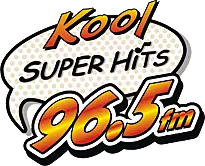
Do you remember the ATC?
My peeps at the radio station on Wednesday morning were talking about things they remembered from the 1980s in Twin Falls. I was young in the '80s and didn't grow up here, but it got me thinking about some things I do remember from back in the day ...
So here's a blog for you.
You know what an ATV is; maybe you’ve even driven one – those fun four-wheelers that can go just about anywhere. But do you remember the ATC?
The all-terrain cycle – basically the three-wheel version of the all-terrain vehicle – was popular in the 1970s and ‘80s, but their fun in the sun was short lived due to concerns about their safety. Honda produced the first ATC in 1970. The ATC 90 was a rather plain-looking, yellow three-wheeler with a four-speed automatic transmission. Its overgrown balloon tires were all the suspension this baby had. Talk about a safety hazard!
But the ATC caught on, and in 1971 Sean Connery was even seen riding one in the James Bond film “Diamonds are Forever.” The ATC is now on display at the “Bond In Motion” exhibit at the National Motor Museum in Beaulieu, England, seen in the following image.
Eventually, the manufacturer produced additional ATCs with higher speeds and suspensions, and other companies jumped on board. They became most popular in the ‘80s when Honda produced the Big Red, an ATC workhorse that was also fun for trail riding. There were even high-speed sport versions of the ATC, such as the Honda ATC 250R, and ATC racing became a popular event.
Then 1987 rolled around and the ATC was banned from being produced due to the high number of fatalities and risk of injury to riders. You can still find used ATCs for sale online, and you can see old videos like this one:
Are Four Wheels Better Than Three?
Then came the four-wheeler, which, as we all know, you can still buy new. But these fun machines are not without their own risks, and the U.S. Consumer Product Safety Commission – the same agency that banned the ATC – has the numbers to prove it.
Between 1982 and 2015 the CPSC received reports of 14,129 ATV-related fatalities. This comprises all ATVs, including three- and four-wheelers. But from a preliminary report by the agency released in January 2017, the number of ATV-related fatalities in the three-year period from 2013-2015 (remember ATCs were banned in ’87) was 1,468 – or 581 in 2013, 547 in 2014, and 340 in 2015.
The estimated number of ATV-related fatalities in 2012, the most recent year reporting is considered complete, was 573; 68 or them – or 12 percent – were younger than 16 years of age.
The CPSC goes on to report ATV-related head injuries and other statistics, painting a somber hue on the otherwise fun activity of riding outdoors on an all-terrain vehicle.
The questions beg an answer: whoever said that more wheels on a machine makes riding safer? And isn't the first line of defense the rider?
I’ve always felt more comfortable on a motorcycle than an all-terrain vehicle, but then again, I grew up with bikes and prefer two-wheelers to ATVs. But no matter what kind of machine you ride, and no matter how experienced you are, safety has to always be the priority.
If you prefer more than two wheels under your seat, you can still enjoy the ride, but do follow all safety measures whenever you or your party get behind the handle bars.
Safety First
Always wear a helmet, that's a given – or at least it should be. But goggles, long sleeves, long pants, over-the-ankle boots and gloves also are recommended by the ATV Safety Institute. It also suggests that you never carry a passenger on a single-rider ATV, never ride an ATV on paved roads, and make sure youth riders are properly trained, equipped with safety gear, and always supervised by an adult.
The institute also recommends novice riders take an ATV RiderCourse, and it offers an ATV checklist of things to do before you ride. You can view the other safety tips on the organization's website or call 800-887-2887.
Remember, happy rides are safe rides. Make sure your rides are happy.

